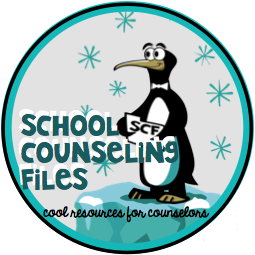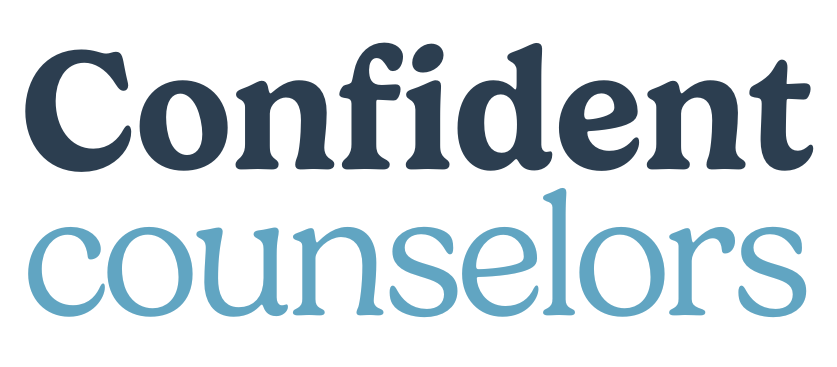What do you share with parents, teachers or your administration about a student’s progress or participation in school counseling services? Is your confidentiality policy considerate of student trust as well as student growth?
[su_divider top=”no” style=”double” divider_color=”#5D94CD” link_color=”#000000″]
All or Nothing Confidentiality Policies Limit Progress
 Confidentiality is there to build trust and rapport while working towards goals. Students, elementary through high school, benefit from wrap-around services to make meaningful progress. They need multiple adults helping them practice skills and reinforcing their efforts. If we do not share information with relevant adults, I think we limit the progress they could make.
Confidentiality is there to build trust and rapport while working towards goals. Students, elementary through high school, benefit from wrap-around services to make meaningful progress. They need multiple adults helping them practice skills and reinforcing their efforts. If we do not share information with relevant adults, I think we limit the progress they could make.
I used the following approach to maintain trust with students while sharing key information that promoted their growth. During our first meeting, I told students the limits of confidentiality (harm to self or others). Next, I told them there was general information that would be helpful to share with others. This included strategies the student was using, progress on a goal, conflicts with another student. They would be told who was getting this information. Lastly, there would be times that I would ask their permission to share things that was uncomfortable for them, but useful for their progress. This usually was helping them admit a mistake or talk to someone about negative feelings they were having. Stopping your confidentiality policy at only discussing possible harm with others limits student growth and your effectiveness.
– Laura Driscoll from Social Emotional Workshop
[su_divider top=”no” style=”double” divider_color=”#5D94CD” link_color=”#000000″]
Find the Balance by Being an Advocate
 It’s often tough to strike that balance between maintaining students’ confidentiality and communicating with the adults who—after all—spend so much more time with them than I do. I encourage kids to let their teachers know if they’re having an issue that’s impacting them at school, and will always volunteer to be present for the conversation (or even to speak on their behalf) if it will make them more comfortable. If the child doesn’t want to share, then I simply tell the teacher that the student is having a hard time right now and may need some extra patience, movement breaks, and TLC. The teachers in my building are wonderful and never press for more details than I can provide.
It’s often tough to strike that balance between maintaining students’ confidentiality and communicating with the adults who—after all—spend so much more time with them than I do. I encourage kids to let their teachers know if they’re having an issue that’s impacting them at school, and will always volunteer to be present for the conversation (or even to speak on their behalf) if it will make them more comfortable. If the child doesn’t want to share, then I simply tell the teacher that the student is having a hard time right now and may need some extra patience, movement breaks, and TLC. The teachers in my building are wonderful and never press for more details than I can provide.
– Laurie Mendoza, School Counseling Files
[su_divider top=”no” style=”double” divider_color=”#5D94CD” link_color=”#000000″]
No Surprises in Confidentiality
 I am passionate that little humans need the support of the adults in their life when they are working on something. Whether that be grief, behavior, self-esteem, or any other concern that’s going on with them. I always tell teachers and parents that they will know what the child is working on even if I don’t share all the details. Each session ends by saying, “You have some ideas that you are going to try this week. I think it might be helpful if you mom (or other adult at home) and teacher knew what you were working on. What do you think we should tell them?”
I am passionate that little humans need the support of the adults in their life when they are working on something. Whether that be grief, behavior, self-esteem, or any other concern that’s going on with them. I always tell teachers and parents that they will know what the child is working on even if I don’t share all the details. Each session ends by saying, “You have some ideas that you are going to try this week. I think it might be helpful if you mom (or other adult at home) and teacher knew what you were working on. What do you think we should tell them?”
So far in 15 years, I have never had a student who didn’t want me to tell the adults in their life something. If I think we need to share more, I’ll be honest with the child and make a plan they can be comfortable with. Even in the case of mandated reporting, I never want a child to step off the bus not knowing what they are going to be walking into. That is the ultimate betrayal to confidentiality.
– Rebecca Atkins, Counselor Up
[su_divider top=”no” style=”double” divider_color=”#5D94CD” link_color=”#000000″]
Confidentiality always creates passionate debate among school mental health professionals. If you are in the process of developing or adjusting your confidentiality policy, look at the policies of your professional organization (e.g., NASP, ASCA, APA), state policies, and your district policy. If your district policy expects you to share more information than you think is ethical, use your professional organization and state policies to advocate for better practices.
ASCA: The School Counselor and Confidentiality
Why “Who is the Client?” is the Wrong Ethical Question
NASP: The Counseling Role in School Psychology




